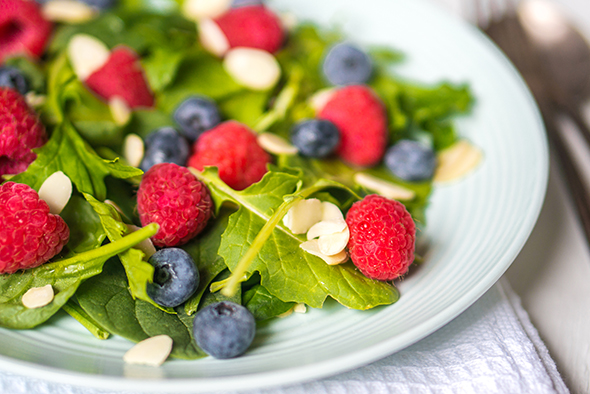
Nutrition and Cardiac Health

Being overweight, not exercising and having high cholesterol levels have been associated with an increased risk of developing heart disease. Good eating habits and lifestyle changes can help lower the risk. Eating foods high in dietary cholesterol, trans fatty acids and saturated fat raises cholesterol in the blood. A diet rich in whole grains, fruit, vegetables, and omega 3 fatty acids may help with weight loss, lower cholesterol and decrease your risk of heart disease.
Suggestions:
- Eat at least 3 servings of vegetables every day
- Avoid foods containing high amounts of saturated fats (examples: meat, butter, lard and full fat dairy products)
- Read food labels and do not eat foods containing trans fatty acids (examples: stick margarine, shortening, high fat pre-packaged baked goods)
- Buy whole wheat bread products, brown rice and whole grain cereals to add fiber and antioxidants to your diet
- Eat fatty fish such as salmon, tuna, mackerel and sardines for heart healthy omega 3 fatty acids
- Eliminate processed and convenience foods
- Limit sodium intake by not adding salt during cooking or at the table

What is Sodium?
Sodium is a mineral found naturally in many foods. The most significant source of sodium in the diet is table salt, which is about 40% sodium. Processed, convenience, and preserved foods also contain a large amount of sodium. The body needs very little sodium to function well.
Why Limit Sodium?
A build-up of sodium in the body can cause thirst, increased blood pressure, shortness of breath, and water retention. Decreasing sodium in the diet can reduce fluid retention and the risk of heart attack or stroke associated with high blood pressure. Keep in mind that there are many other factors involved in these health problems. Heredity, obesity, lack of exercise, cigarette smoking, stress, and what you eat all play a role.
Eating Out
Generally, foods served in restaurants are often seasoned with salt and/or MSG. Request to have an item prepared without these seasonings. Good choices are broiled or roasted meats, fish, or poultry without sauces or gravies. Baked potato and salad should be ordered with allowed dressings on the side. Fruits and sherbet or ice cream are lower in sodium than rich pastries and desserts (such as pie).
“Fast foods” are generally high in sodium. Careful selection is required. For example, choose a hamburger, roast beef, or sliced chicken sandwich without added condiments (like “secret sauces”). Lettuce, tomato, and mayonnaise are okay.

ProMedica skilled nursing centers have teamed up with Sodexo to provide patients with healthy , nutritious meals made from scratch in the center’s kitchen.
ProMedica clinical dietitians consult with the patient and family as well as the care team to develop customized nutrition plans to help ensure patients receive the best possible nutritional care to meet their individual goals. Our wellness program’s nutrition criteria meet the dietary guidelines of most health organizations.
Additional Information:
Refer to the following websites for additional information on nutrition and cardiac health:
American Heart Association
www.heart.org
Dietary Guidelines for Americans
health.gov/dietaryguidelines/
USDA MyPlate
Choosemyplate.gov
Consult with your physician or registered dietitian if you have questions.
Adapted from Sodexo Senior Living, Resident and Nutrition Services, Heart Healthy Living; Sodexo, Feed your body of knowledge, When your nutrition prescription is two gram sodium, 9/2012; Sodexo, Feed your body of knowledge, Nutrition guidelines for heart health, 9/2012


